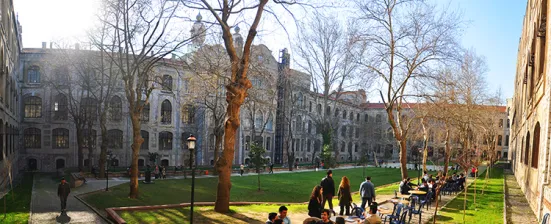The Campus Climate in Turkish Universities
Turkey has unpleasant memories from several military interventions including the coups in 1961 and 1980. During the cold war, those were conflicts that reflected the cleavage between people in the “right” and “left”. During past coups, many academics were discharged from universities due to their political views, and academic freedom for others was strictly curtailed by military-led governments.
The thankfully unsuccessful coup attempt on this past July 15 was unlike previous coups. The latest attempt directly targeted the democratically elected government. After the attempt, the government started to take measures towards the FETÖ group, which is viewed as the architect of the coup. Their actions primarily aim to purge FETÖ supporters from public institutions, including educational organizations. In this post I discuss the impacts of this process on campus climates.
Current climate in Turkish universities
Firstly, more than 20,000 teachers were laid off from a job by the Ministry of National Education (MEB). MEB also announced that new teachers will be appointed with six year contracts to replace those teachers who may be dismissed after their investigation. Moreover, MEB decided to turn 524 private schools of the FETÖ group into public schools.
Additionally, the Council of Higher Education (YÖK) announced that around 2,300 academics, including 440 professors, 525 associate professors, and 654 assistant professors, were suspended from Turkish universities. The rectorates, as the top management unit in the Turkish university system, started investigations on all these academics. However, no one has been officially fired yet, except a few of the academics arrested.

YÖK also seized control of 15 foundation universities, and students from these universities were transferred to geographically close public universities. Furthermore, YÖK discharged five rectors in addition to all deans in Turkish universities. Lastly, on July 29 YÖK postponed the appointment of new faculty as well as the promotion of active ones in 37 public universities that are in the rectorate election period.
During the last 15 days, these actions caused different reactions within universities. For example, 138,000 students from foundation universities were added to the student population of public universities. These students will mostly study in large and crowded public institutions. Thus, faculty in these universities started to talk about the difficulties to teach in over-capacity classrooms, and the potential for a decrease in the teaching and learning outcomes.
Another issue is running the courses that had been taught be the suspended professors. Department heads started to seek alternatives; first they tried assigning the courses to other faculty in their departments. They have also considered graduate (especially doctoral) students to teach in undergraduate programmes. However, 77 of the 114 public universities are under twenty-five years old, and most of these younger institutions do not have large graduate programs. Therefore, it is unavoidable that the undesirable effects of high teaching loads will be felt, both in teaching quality and in faculty research productivity.
Moreover, faculty morale has declined by the current uncertainty over the future of Turkey. Academics constitutes one of the prominent groups that has closely followed the actions taken by the government, especially towards public institutions. Within small friendly groups, they have discussed the impact of these actions on the social life and economy in Turkey. Although they avoid making their opinions public due to the sensitive political situation, academic issues have been secondary in their minds.
Turkish professors also have concerns over their own futures after the recent suspension of many academics because of their possible connections with the FETÖ group. Each faculty member has at least one or two colleagues from their departments or faculties among those suspended. Thereby, many professors have preferred to close their office doors in order to avoid potential questions about their suspended colleagues during the official investigations.
Furthermore, the government recently made a call to citizens to report people who have possible connections with the FETÖ group to security forces. After this call, it is not difficult to foresee the disappearance of small discussion groups considering Turkey’s situation, and the quick expansion of an atmosphere of mistrust in Turkish universities.
What can be done to improve campus atmospheres?
There has been much commentary in international media and scholarly outlets related to concerns about academic freedom in Turkey, even about freedom of speech. However, there is currently no direct restriction from the government on both the freedom of speech and academic freedom.
Turkish academia has a strong culture of academic freedom although it suffered many times from military actions during the history of the republic. Thus, it can be expected that major academic communities and associations in Turkey will warn the government if they sense alarming threats to academic freedom.
On the other hand, it is true that Turkish universities have some real difficulties the suspension of a large number of faculty. Most adversities relate to the situation created by high teaching loads in overfilled classrooms. To overcome these challenges, governmental authorities must firstly complete investigations on those that have been suspended and secure the return of those deemed innocent to their jobs, as soon as possible.
Separating innocent academics from enemies of democracy will contribute to restoring an environment of trust in universities. The authorities should then fill the vacant positions from discharged academics by appointing qualified candidates in a short time frame.
However, it will not be an easy task for the government to attract young talent, especially in STEM areas, to academia due to higher salaries in the private sector. The government also has to balance the numbers of hires through internal promotions with external appointment, in order to avoid the negative side effects of inbreeding in universities. Merit and fairness should be the critical factors in appointments and promotions in public institutions.
Baris Uslu, PhD, is a researcher at Canakkale Onsekiz Mart University, Turkey. Previously, he was a visiting scholar at the Faculty of Education and Social Work, The University of Sydney, Australia from 2014 to 2015.